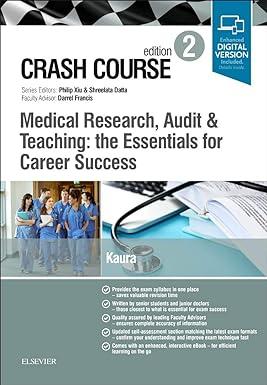Question
Exxon Mobil Refer to the attached 2013 annual report (10-K) for ExxonMobil, included at the bottom of this page. Using the annual report, answer the
Exxon Mobil
Refer to the attached 2013 annual report (10-K) for ExxonMobil, included at the bottom of this page.
Using the annual report, answer the questions under the following sections. Complete your assignment in a Microsoft Word document. Part of your grade will be based on the structure and organization of your project, therefore clearly identify each section and numbered item to which you are responding. Indicate the page number of the annual report where you found the answer(s) to each question. Additionally, show all relevant calculations in a table(s) in your Word document.
Through the eight weeks of this course, Intermediate Accounting II, you should develop responses to the following questions to complete your Portfolio Project in a timely way:
Long-Term Debt 1. What was the difference between the interest expense and interest paid in 2013? 2. How much long-term debt will mature in 2014? 3. What was the weighted average interest rate on the companys long-term debt for the year ended December 31, 2013? 4. Was the current yield at December 31, 2013, on the companys long-term debt the same as, greater, or less than the average yield at issuance? At December 31, 2012?
Contributed Capital 1. How many shares of preferred stock were authorized and issued at the end of 2013? 2. How many shares of common stock were authorized and issued at the end of 2013? What is the par value per share? 3. How many shares of treasury stock did the company hold at the end of 2013? What was the average cost per share? 4. How many shares of treasury stock did the company reacquire during 2013? What was the average cost per share? 5. Briefly describe the companys Stock Option Plan. Answer the following questions regarding the plan.
Investments 1. How much was the fair value of the companys investments at the end of 2013? What comprises these investments? 2. How much was the change in investments from 2012 to 2013? 3. What was the companys basic net income per share for 2013? How does this amount compare to 2012?
How much preferred dividends were subtracted in the computation of this income per share?
What was the average number of common shares outstanding used in the computation of this income per share?
What was the companys diluted net income per share for 2013? How does this amount compare to 2012?
What potential common shares were included and excluded, and why?
4. What were the dividends per share and in total for 2013?
Income Tax 1. What was the total income tax expense relating to income before income taxes for 2013? How much of this was current? How much was deferred? 2. What were the total deferred tax assets at the end of 2013? Total deferred tax liabilities? Net deferred tax liability? 3. How much was the noncurrent deferred tax liability at the end of 2013 and where was it reported?
Pension and Other Postemployment Benefits 1. What kind of pension plans does the company have? 2. How much is the companys pension and other postemployment benefits expense in 2013? 3. How much are the companys actual and expected return on plan assets in 2013? 4. How much is the benefit obligation at December 31, 2013?
Leasing 1. What type(s) of lease does the company have? Why does the company use this type of lease? 2. How much were the obligations reported?
Cash Flow 1. What was the net cash provided by operating activities for 2013? What method was used to determine this amount? What was the largest positive adjustment to net income? 2. What was the net cash used in investing activities for 2013? What was the largest investing cash outflow? Investing cash inflow? 3. What was the net cash used in financing activities for 2013? What was the largest financing cash inflow? Financing cash outflow? 4. What was the interest paid in 2013? Income taxes paid? 5. Compute the cash flow from operations to sales ratio for 2013. How does this result compare to 2012? Why? 6. Compute the profit margin for 2013. How does this result compare to the cash flow from operations to sales ratio for 2013? Why?
Financial Disclosures 1. Did the firms auditors provide a clean opinion on the financial statements? 2. Has the company made changes in any accounting methods or estimates it uses? Discuss the stated reasons and types of changes. 3. Has the company made any accounting errors correction? Discuss the stated reasons and types of correction. 4. Have there been any subsequent events, errors and irregularities, illegal acts, or related-party transactions that have a material effect on the companys financial position? 5. Name at least two trends in the companys operations or capital resources that management considers significant to the companys future? 6. Is the company engaged in more than one significant line of business? If so, what are the companys operating segments? What is the sales volume from each segment? What is the sales trend for each market in the last two years? In addition, compare the relative profitability of the segments.
Exxon Mobile Website Link:
https://www.sec.gov/Archives/edgar/data/34088/000003408814000012/xom10k2013.htm
Step by Step Solution
There are 3 Steps involved in it
Step: 1

Get Instant Access to Expert-Tailored Solutions
See step-by-step solutions with expert insights and AI powered tools for academic success
Step: 2

Step: 3

Ace Your Homework with AI
Get the answers you need in no time with our AI-driven, step-by-step assistance
Get Started


